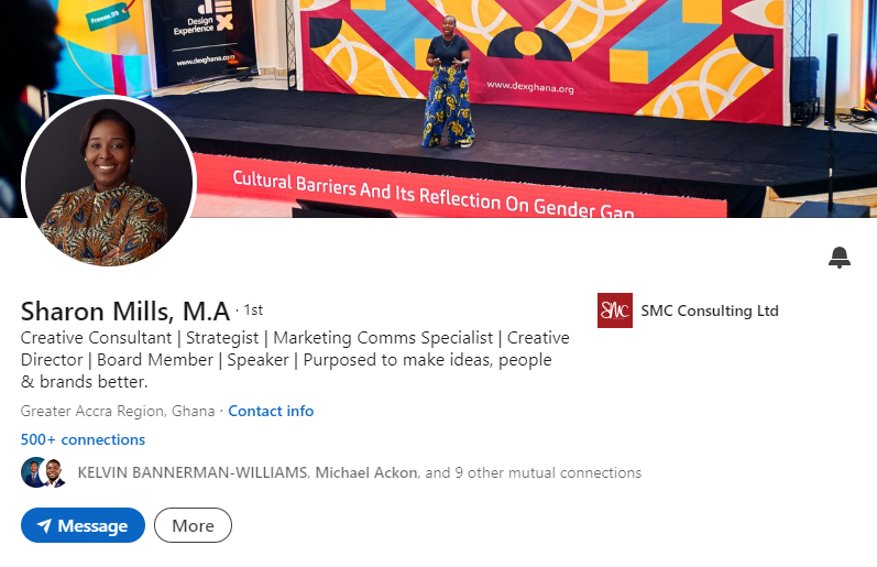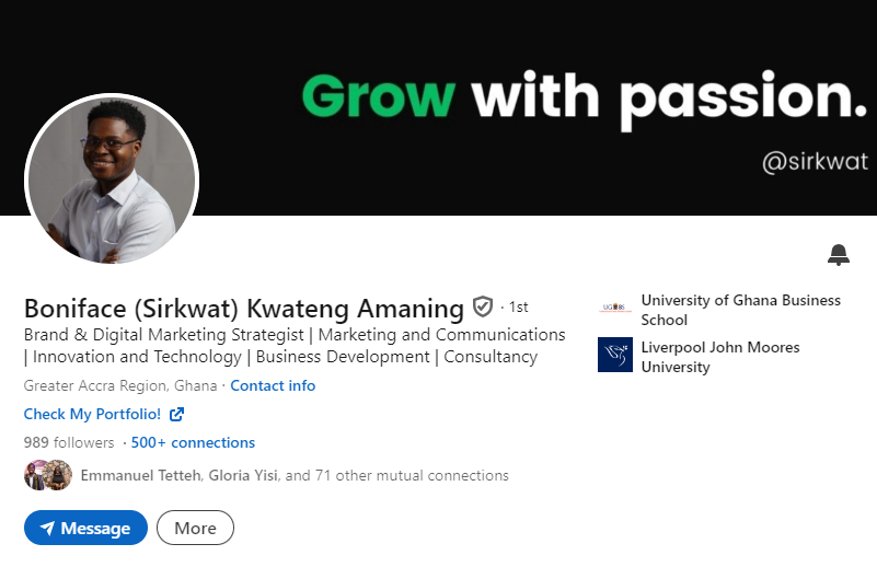
07 September, 2024 02:43 AM
0
00
“Hello Ma’am, I attended the Refresh programme. Thanks for the insights shared”
Just this concise note I attached to a LinkedIn invitation request to Sharon Mills, M.A., a Creative Consultant and Marketing Communications Specialist was how I built a mentor-mentee relationship with a professional in the Communications Industry I could easily ask for guidelines and clarification from.

The tiring process of sending internship applications to multiple companies and following up to secure a slot was skipped by a colleague and I. How? Our senior at UGBS, who we had a companionship with only asked us to send our CVs to the Executive Chairman of a reputable Management Consulting firm she had already introduced us to.
I am authoring and editing blog posts now all because I walked up to the office of the Digital Marketer of UGBS to express my interest in content writing. My expectations were met and I have a resourceful personnel to guide me throughout my content writing journey.

All the three distinct experiences converge as what is described as Professional Networking.
The broad term, networking, is simply establishing relationships with others. The purpose for establishing these relationships is the basis for the two main types of networking: Social Networking and Professional Networking. Daniel Nations in his Lifewire article defines social networking as the use of internet-based social media platforms to stay connected with friends, family, or peers. Professional networking is also described as the act of creating and nurturing relationships with others in a professional setting (Taylor, 2023). While social networking leverages on social networks/sites such as Facebook, X, WhatsApp for connecting with friends, family, colleagues or customers, professional networking is a deliberate effort to build relationships with both professionals and fellow aspiring professionals in one’s industry and other related or relevant fields.
Though the statement, “Your network is your net worth” sounds more of a cliche than a call to action due to speakers constantly stressing the importance of networking at almost every career development event organised for students, it is worthy to note that a well-established network can provide invaluable opportunities, insights and support that can significantly impact one’s career path and success.
The Relevance of Networking
Imagine the peace of mind that would emanate from knowledge that you have a job waiting for you immediately after you graduate, the confidence that exudes from having a clear sense of direction in your chosen career of choice of mind and the ease of having a pool of professionals in your desired industry you could easily tap into when the need be. These are some advantages that engaging in professional networking comes with.
Benefits of networking in college
Who to network with and where?
We’re usually tempted to rush to the stage where event speakers were seated to take their contacts because we think that is all there is to professional networking. Professional networking can be that basic, starting with:
- Course mates who are individuals we often have encounters with throughout our entire college life.
- Lecturers who facilitate the various courses we take each semester.
- Preceding students of the programmes we have been offered in our universities/colleges.
- The lady or gentleman to your left or right or both sides when you take your seat at any event you attend including lecturers, seminars and workshops.
- Members of the clubs and associations we are a part of on campus.
- Family members. They can be helpful in securing opportunities at their various workplaces or through their colleagues once they are abreast with your endeavours.
It all begins with a well-crafted introduction of one’s self wherever the networking is taking place. You could start with the one-liner, “Hey! I don’t think we’ve met yet. I’m…. Nice to meet you.”
How to introduce yourself professionally while networking
For the shy or introverted, Linkedin may be an escape route to avoid in-person events while still reaping the fruits of professional networking. It’s however worthy to note the relevance of a well-optimised LinkedIn Profile.
Maintaining connections after networking
The benefits I enjoy from connections I’ve made didn’t come from a one-time introduction. Intentionality is the secret to maintaining your professional network. Networking doesn’t end after taking the contact of a fellow attendee or speaker at a workshop you attended or after having your LinkedIn invitation accepted. You can be intentional with the specific questions you ask your potential mentor like these. You can also deliberately check in with your network on special occasions, like wishing them well at the start of a new month. It’s the ongoing, intentional effort that sustains these relationships.
Remember, “Who you know” is not just a saying – it’s a reality! Smile, and say hello upon taking your seat at the next event you attend.
Authored by: Mawuena Abena Dossah